- Home
- Brandon Sanderson
Words of Radiance Page 19
Words of Radiance Read online
Page 19
He took Rock by the hand, helping the larger man to his feet. Rock dusted himself off.
“That was embarrassing,” Sigzil said as Kaladin walked over to free him too. “It’s like we’re children. The Prime’s own eyes have not seen such a shameful show.”
“I have a very unfair advantage,” Kaladin said, helping Sigzil to his feet. “Years of training as a soldier, a larger build than you. Oh, and the ability to emit Stormlight from my fingers.” He patted Sigzil on the shoulder. “You did well. This is just a test, like you wanted.”
A more useful type of test, Kaladin thought.
“Sure,” Lopen said from behind them. “Just go ahead and leave the Herdazian stuck to the wall. The view here is wonderful. Oh, and is that slime running down my cheek? A fresh new look for the Lopen, who cannot brush it away, because—have I mentioned?—his hand is stuck to the wall.”
Kaladin smiled, walking over. “You were the one who asked me to stick you to a wall in the first place, Lopen.”
“My other hand?” Lopen said. “The one that was cut off long ago, eaten by a fearsome beast? It is making a rude gesture toward you right now. I thought you would wish to know, so that you can prepare to be insulted.” He said it with the same lightheartedness with which he seemed to approach everything. He had even joined the bridge crew with a certain crazy eagerness.
Kaladin let him down.
“This thing,” Rock said, “it worked well.”
“Yes,” Kaladin said. Though honestly, he probably could have dispatched the three men more easily just by using a spear and the extra speed and strength the Stormlight lent. He didn’t know yet whether that was because he was unfamiliar with these new powers, but he did think that forcing himself to use them had put him in some awkward positions.
Familiarity, he thought. I need to know these abilities as well as I know my spear.
That meant practice. Lots of practice. Unfortunately, the best way to practice was to find someone who matched or bested you in skill, strength, and capacity. Considering what he could now do, that was going to be a tall order.
The three others walked over to dig waterskins from their packs, and Kaladin noticed a figure standing in the shadows a little ways down the chasm. Kaladin stood up, alarmed until Teft emerged into the light of their spheres.
“I thought you were going to be on watch,” Teft growled at Lopen.
“Too busy being stuck to walls,” Lopen said, raising his waterskin. “I thought you had a bunch of greenvines to train?”
“Drehy has them in hand,” Teft said, picking his way around some debris, joining Kaladin beside the chasm wall. “I don’t know if the lads told you, Kaladin, but bringing that lot down here broke them out of their shells somehow.”
Kaladin nodded.
“How did you get to know people so well?” Teft asked.
“It involves a lot of cutting them apart,” Kaladin said, looking down at his hand, which he’d scraped while fighting Rock. The scrape was gone, Stormlight having healed the tears in his skin.
Teft grunted, glancing back at Rock and the other two, who had broken out rations. “You ought to put Rock in charge of the new recruits.”
“He won’t fight.”
“He just sparred with you,” Teft said. “So maybe he will with them. People like him more than me. I’m just going to screw this up.”
“You’ll do a fine job, Teft, I won’t have you saying otherwise. We have resources now. No more scrimping for every last sphere. You’ll train those lads, and you’ll do it right.”
Teft sighed, but said no more.
“You saw what I did.”
“Aye,” Teft said. “We’ll need to bring down the entire group of twenty if we want to give you a proper challenge.”
“That or find another person like myself,” Kaladin said. “Someone to spar with.”
“Aye,” Teft said again, nodding, as if he hadn’t considered that.
“There were ten orders of knights, right?” Kaladin asked. “Do you know much of the others?” Teft had been the first one to figure out what Kaladin could do. He’d known before Kaladin himself had.
“Not much,” Teft said with a grimace. “I know the orders didn’t always get along, despite what the official stories say. We’ll need to see if we can find someone who knows more than I do. I . . . I kept away. And the people I knew who could tell us, they aren’t around any longer.”
If Teft had been in a dour mood before, this drove him down even further. He looked at the ground. He spoke of his past infrequently, but Kaladin was more and more certain that whoever these people had been, they were dead because of something Teft himself had done.
“What would you think if you heard that somebody wanted to refound the Knights Radiant?” Kaladin said softly to Teft.
Teft looked up sharply. “You—”
“Not me,” Kaladin said, speaking carefully. Dalinar Kholin had let him listen in on the conference, and while Kaladin trusted Teft, there were certain expectations of silence that an officer was required to uphold.
Dalinar is a lighteyes, part of him whispered. He wouldn’t think twice if he were revealing a secret you’d shared with him.
“Not me,” Kaladin repeated. “What if a king somewhere decided he wanted to gather a group of people and name them Knights Radiant?”
“I’d call him an idiot,” Teft said. “Now, the Radiants weren’t what people say. They weren’t traitors. They just weren’t. But everyone is sure they betrayed us, and you’re not going to change minds quickly. Not unless you can Surgebind to quiet them.” Teft looked Kaladin up and down. “Are you going to do it, lad?”
“They’d hate me, wouldn’t they?” Kaladin said. He couldn’t help noticing Syl, who walked through the air until she was close, studying him. “For what the old Radiants did.” He held up a hand to stop Teft’s objection. “What people think they did.”
“Aye,” Teft said.
Syl folded her arms, giving Kaladin a look. You promised, that look said.
“We’ll have to be careful about how we do it, then,” Kaladin said. “Go gather the new recruits. They’ve had enough practice down here for one day.”
Teft nodded, then jogged off to do as ordered. Kaladin gathered his spear and the spheres he’d set out to light the sparring, then waved to the other three. They packed up their things and began the hike back out.
“So you’re going to do it,” Syl said, landing on his shoulder.
“I want to practice more first,” Kaladin said. And get used to the idea.
“It will be fine, Kaladin.”
“No. It will be hard. People will hate me, and even if they don’t, I’ll be set apart from them. Separated. I’ve accepted that as my lot, though. I’ll deal with it.” Even in Bridge Four, Moash was the only one who didn’t treat Kaladin like some mythological savior Herald. Him and maybe Rock.
Still, the other bridgemen hadn’t reacted with the fear he’d once worried about. They might idolize him, but they did not isolate him. It was good enough.
They reached the rope ladder before Teft and the greenvines, but there was no reason to wait. Kaladin climbed up out of the muggy chasm onto the plateau just east of the warcamps. It felt so strange to be able to carry his spear and money out of the chasm. Indeed, the soldiers guarding the approach to Dalinar’s warcamp didn’t pester him—instead, they saluted and stood up straight. It was as crisp a salute as he’d ever gotten, as crisp as the ones given to a general.
“They seem proud of you,” Syl said. “They don’t even know you, but they’re proud of you.”
“They’re darkeyes,” Kaladin said, saluting back. “Probably men who were fighting on the Tower when Sadeas betrayed them.”
“Stormblessed,” one of them called. “Have you heard the news?”
Curse the one who told them that nickname, Kaladin thought as Rock and the other two caught up to him.
“No,” Kaladin called. “What news?”
�
�A hero has come to the Shattered Plains!” the soldier yelled back. “He’s going to meet with Brightlord Kholin, perhaps support him! It’s a good sign. Might help calm things down around here.”
“What’s this?” Rock called back. “Who?”
The soldier said a name.
Kaladin’s heart became ice.
He nearly lost his spear from numb fingers. And then, he took off running. He didn’t heed Rock’s cry behind him, didn’t stop to let the others catch up with him. He dashed through the camp, running toward Dalinar’s command complex at its center.
He didn’t want to believe when he saw the banner hanging in the air above a group of soldiers, probably matched by a much larger group outside the warcamp. Kaladin passed them, drawing cries and stares, questions if something was wrong.
He finally stumbled to a stop outside the short set of steps into Dalinar’s bunkered complex of stone buildings. There, standing in front, the Blackthorn clasped hands with a tall man.
Square-faced and dignified, the newcomer wore a pristine uniform. He laughed, then embraced Dalinar. “Old friend,” he said. “It’s been too long.”
“Too long by far,” Dalinar agreed. “I’m glad you finally made your way here, after years of promises. I heard you’ve even found yourself a Shardblade!”
“Yes,” the newcomer said, pulling back and holding his hand to the side. “Taken from an assassin who dared try to kill me on the field of battle.”
The Blade appeared. Kaladin stared at the silvery weapon. Etched along its length, the Blade was shaped to look like flames in motion, and to Kaladin it seemed that the weapon was stained red. Names flooded his mind: Dallet, Coreb, Reesh . . . a squad before time, from another life. Men Kaladin had loved.
He looked up and forced himself to see the face of the newcomer. A man Kaladin hated, hated beyond any other. A man he had once worshipped.
Highlord Amaram. The man who had stolen Kaladin’s Shardblade, branded his forehead, and sold him into slavery.
THE END OF
Part One
The Rhythm of Resolve thrummed softly in the back of Eshonai’s mind as she reached the plateau at the center of the Shattered Plains.
The central plateau. Narak. Exile.
Home.
She ripped the helm of the Shardplate from her head, taking a deep breath of cool air. Plate ventilated wonderfully, but even it grew stuffy after extended exertions. Other soldiers landed behind her—she had taken some fifteen hundred this run. Fortunately, this time they’d arrived well before the humans, and had harvested the gemheart with minimal fighting. Devi carried it; he had earned the privilege by being the one to spot the chrysalis from afar.
Almost she wished it had not been so easy a run. Almost.
Where are you, Blackthorn? she thought, looking westward. Why have you not come to face me again?
She thought she’d seen him on that run a week or so back, when they’d been forced off the plateau by his son. Eshonai had not participated in that fight; her wounded leg ached, and the jumping from plateau to plateau had stressed it, even in Shardplate. Perhaps she should not be going on these runs in the first place.
She’d wanted to be there in case her strike force grew surrounded, and needed a Shardbearer—even a wounded one—to break them free. Her leg still hurt, but Plate cushioned it enough. Soon she would have to return to the fighting. Perhaps if she participated directly, the Blackthorn would appear again.
She needed to speak with him. She felt an urgency to do so blowing upon the winds themselves.
Her soldiers raised hands in farewell as they went their separate ways. Many softly sang or hummed a song to the Rhythm of Mourning. These days, few sang to Excitement, or even to Resolve. Step by step, storm by storm, depression claimed her people—the listeners, as they called their race. “Parshendi” was a human term.
Eshonai strode toward the ruins that dominated Narak. After so many years, there wasn’t much left. Ruins of ruins, one might call them. The works of men and listeners alike did not last long before the might of the highstorms.
That stone spire ahead, that had probably once been a tower. Over the centuries, it had grown a thick coating of crem from the raging storms. The soft crem had seeped into cracks and filled windows, then slowly hardened. The tower now looked like an enormous stalagmite, rounded point toward the sky, side knobbed with rock that looked as if it had been melted.
The spire must have had a strong core to survive the winds so long. Other examples of ancient engineering had not fared so well. Eshonai passed lumps and mounds, remnants of fallen buildings that had slowly been consumed by the Shattered Plains. The storms were unpredictable. Sometimes huge sections of rock would break free from formations, leaving gouges and jagged edges. Other times, spires would stand for centuries, growing—not shrinking—as the winds both weathered and augmented them.
Eshonai had discovered similar ruins in her explorations, such as the one she’d been on when her people had first encountered humans. Only seven years ago, but also an eternity. She had loved those days, exploring a wide world that felt infinite. And now . . .
Now she spent her life trapped on this one plateau. The wilderness called to her, sang that she should gather up what things she could carry and strike out. Unfortunately, that was no longer her destiny.
She passed into the shadow of a big lump of rock that she always imagined might have been a city gate. From what little they’d learned from their spies over the years, she knew that the Alethi did not understand. They marched over the uneven surface of the plateaus and saw only natural rock, never knowing that they traversed the bones of a city long dead.
Eshonai shivered, and attuned the Rhythm of the Lost. It was a soft beat, yet still violent, with sharp, separated notes. She did not attune it for long. Remembering the fallen was important, but working to protect the living was more so.
She attuned Resolve again and entered Narak. Here, the listeners had built the best home they could during the years of war. Rocky shelves had become barracks, carapace from greatshells forming the walls and roofs. Mounds that had once been buildings now grew rockbuds for food on their leeward sides. Much of the Shattered Plains had once been populated, but the largest city had been here at the center. So now the ruins of her people made their home in the ruins of a dead city.
They had named it Narak—exile—for it was where they had come to be separated from their gods.
Listeners, both malen and femalen, raised hands to her as she passed. So few remained. The humans were relentless in their pursuit of vengeance.
She didn’t blame them.
She turned toward the Hall of Art. It was nearby, and she hadn’t put in an appearance there for days. Inside, soldiers did a laughable job of painting.
Eshonai strode among them, still wearing her Shardplate, helm under her arm. The long building had no roof—allowing in plenty of light to paint by—and the walls were thick with long-hardened crem. Holding thick-bristled brushes, the soldiers tried their best to depict the arrangement of rockbud flowers on a pedestal at the center. Eshonai did a round of the artists, looking at their work. Paper was precious and canvas nonexistent, so they painted on shell.
The paintings were awful. Splotches of garish color, off-center petals . . . Eshonai paused beside Varanis, one of her lieutenants. He held the brush delicately between armored fingers, a hulking form before an easel. Plates of chitin armor grew from his arms, shoulders, chest, even head. They were matched by her own, under her Plate.
“You are getting better,” Eshonai said to him, speaking to the Rhythm of Praise.
He looked to her, and hummed softly to Skepticism.
Eshonai chuckled, resting a hand on his shoulder. “It actually looks like flowers, Varanis. I mean it.”
“It looks like muddy water on a brown plateau,” he said. “Maybe with some brown leaves floating in it. Why do colors turn brown when they mix? Three beautiful colors put together, and they become the leas
t beautiful color. It makes no sense, General.”
General. At times, she felt as awkward in the position as these men did trying to paint pictures. She wore warform, as she needed the armor for battle, but she preferred workform. More limber, more rugged. It wasn’t that she disliked leading these men, but doing the same thing every day—drills, plateau runs—numbed her mind. She wanted to be seeing new things, going new places. Instead, she joined her people in a long funeral vigil as, one by one, they died.
No. We will find a way out of it.
The art was part of that, she hoped. By her order, each man or woman took a turn in the Hall of Art at their appointed time. And they tried; they tried hard. So far, it had been about as successful as trying to leap a chasm with the other side out of sight. “No spren?” she asked.
“Not a one.” He said it to the Rhythm of Mourning. She heard that rhythm far too often these days.
“Keep trying,” she said. “We will not lose this battle for lack of effort.”
“But General,” Varanis said, “what is the point? Having artists won’t save us from the swords of humans.”
Nearby, other soldiers turned to hear her answer.
“Artists won’t help,” she said to the Rhythm of Peace. “But my sister is confident that she is close to discovering new forms. If we can discover how to create artists, then it might teach her more about the process of change—and that might help her with her research. Help her discover forms stronger, even, than warform. Artists won’t get us out of this, but some other form might.”
Varanis nodded. He was a good soldier. Not all of them were—warform did not intrinsically make one more disciplined. Unfortunately, it did hamper one’s artistic skill.
Eshonai had tried painting. She couldn’t think the right way, couldn’t grasp the abstraction needed to create art. Warform was a good form, versatile. It didn’t impede thought, like mateform did. As with workform, you were yourself when you were warform. But each had its quirks. A worker had difficulty committing violence—there was a block in the mind somewhere. That was one of the reasons she liked the form. It forced her to think differently to get around problems.

 Steelheart
Steelheart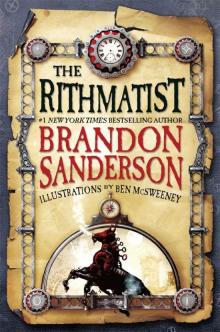 The Rithmatist
The Rithmatist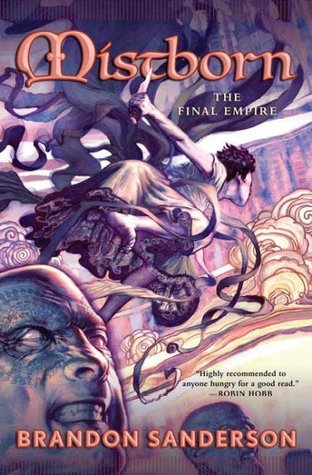 Mistborn: The Final Empire
Mistborn: The Final Empire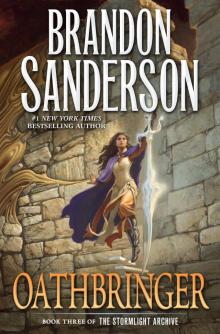 Oathbringer
Oathbringer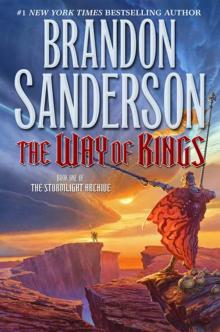 The Way of Kings
The Way of Kings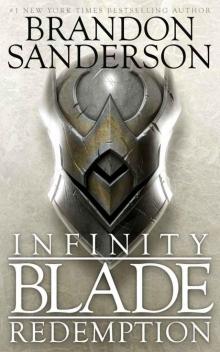 Redemption
Redemption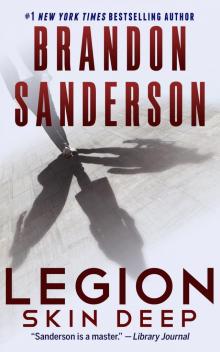 Skin Deep
Skin Deep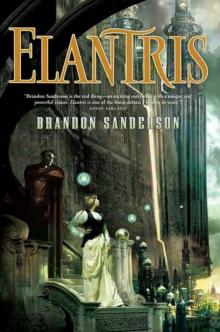 Elantris
Elantris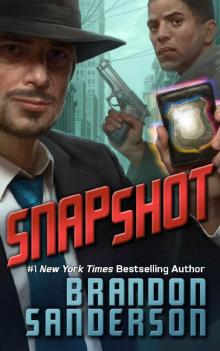 Snapshot
Snapshot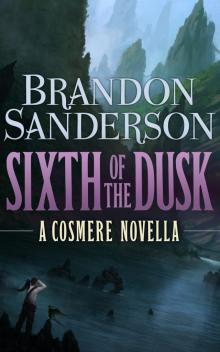 Sixth of the Dusk (Cosmere)
Sixth of the Dusk (Cosmere)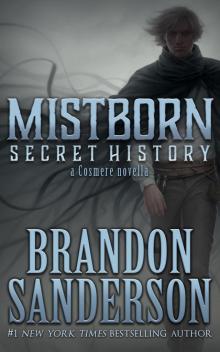 Mistborn: Secret History
Mistborn: Secret History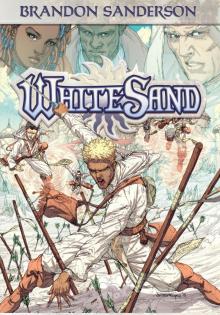 White Sand, Volume 1
White Sand, Volume 1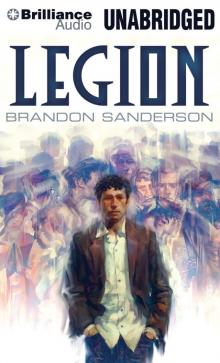 Legion
Legion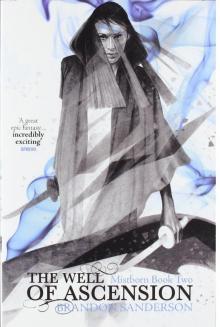 The Well of Ascension
The Well of Ascension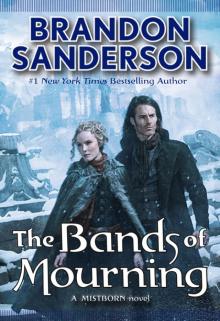 The Bands of Mourning
The Bands of Mourning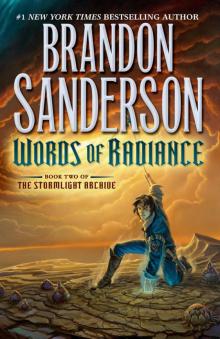 Words of Radiance
Words of Radiance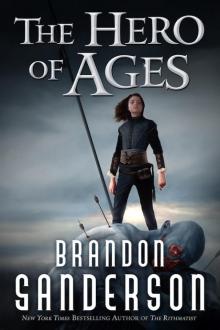 The Hero of Ages
The Hero of Ages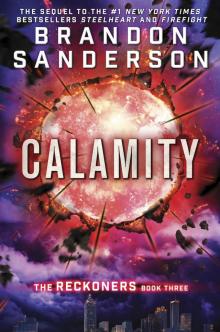 Calamity
Calamity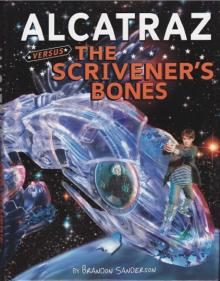 Alcatraz Versus the Scrivener's Bones
Alcatraz Versus the Scrivener's Bones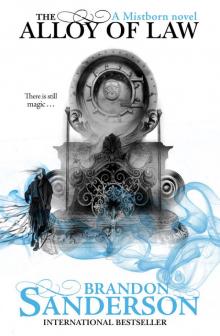 The Alloy of Law
The Alloy of Law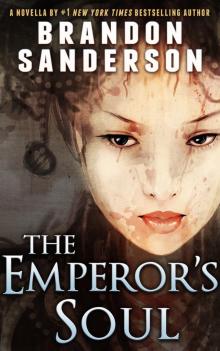 The Emperors Soul
The Emperors Soul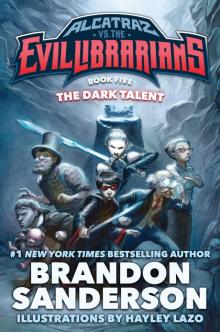 The Dark Talent
The Dark Talent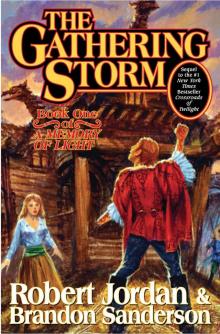 The Gathering Storm
The Gathering Storm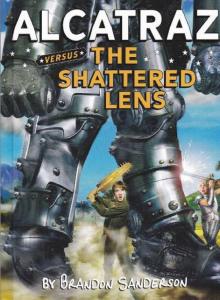 Alcatraz Versus the Shattered Lens
Alcatraz Versus the Shattered Lens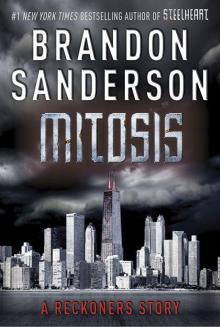 Mitosis
Mitosis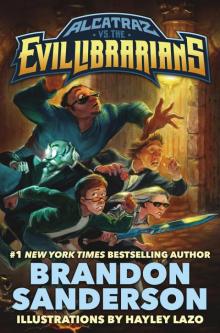 Alcatraz vs. The Evil Librarians
Alcatraz vs. The Evil Librarians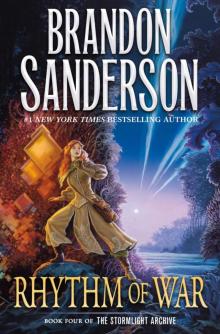 Rhythm of War (9781429952040)
Rhythm of War (9781429952040)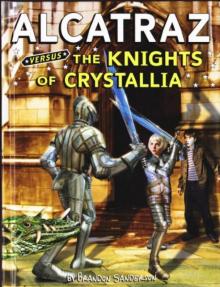 Alcatraz Versus the Knights of Crystallia
Alcatraz Versus the Knights of Crystallia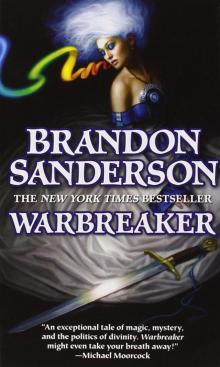 Warbreaker
Warbreaker Firstborn
Firstborn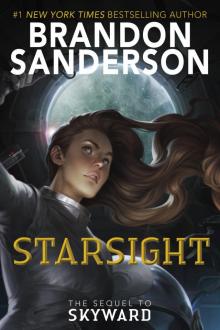 Starsight
Starsight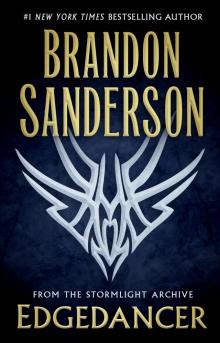 Edgedancer
Edgedancer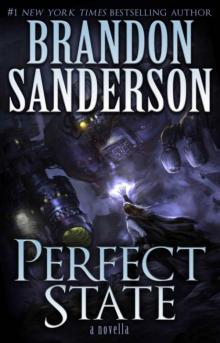 Perfect State
Perfect State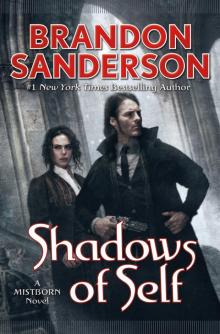 Shadows of Self
Shadows of Self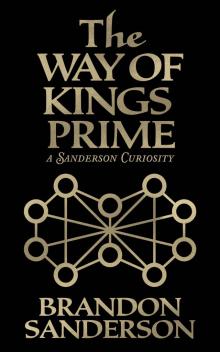 The Way of Kings Prime
The Way of Kings Prime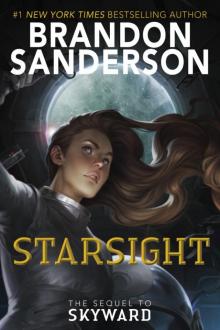 Starsight (US)
Starsight (US)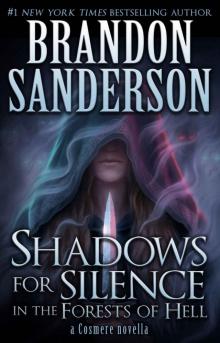 Shadows for Silence in the Forests of Hell
Shadows for Silence in the Forests of Hell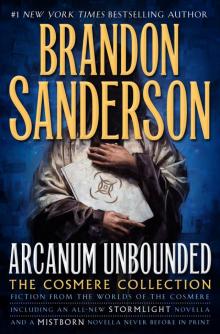 Arcanum Unbounded: The Cosmere Collection
Arcanum Unbounded: The Cosmere Collection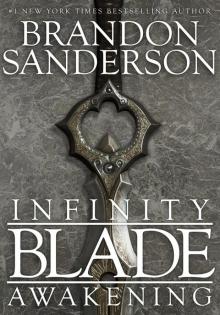 Awakening
Awakening Firefight
Firefight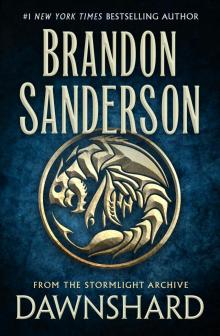 Dawnshard
Dawnshard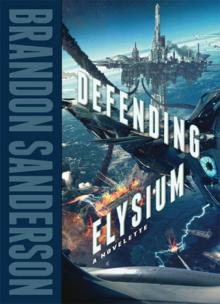 Defending Elysium
Defending Elysium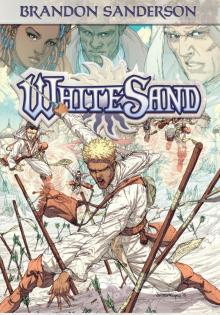 White Sand
White Sand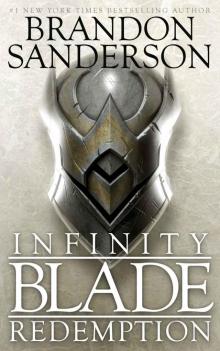 Infinity Blade: Redemption
Infinity Blade: Redemption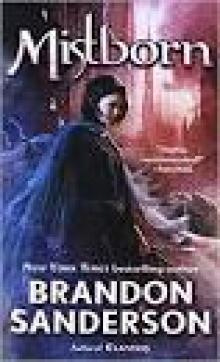 The Final Empire
The Final Empire Skyward
Skyward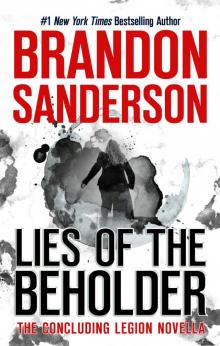 Lies of the Beholder
Lies of the Beholder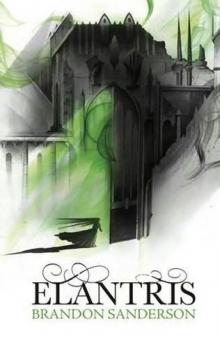 Elantris e-1
Elantris e-1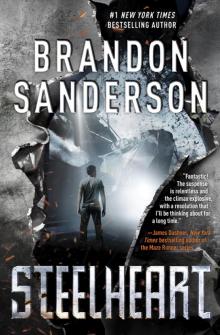 Steelheart r-1
Steelheart r-1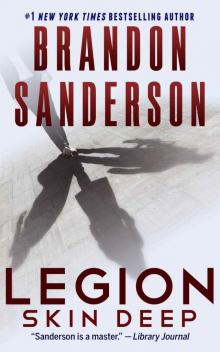 Legion: Skin Deep
Legion: Skin Deep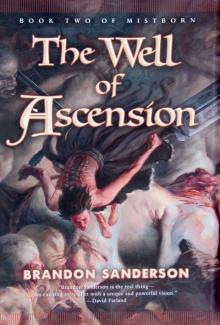 Well of Ascension
Well of Ascension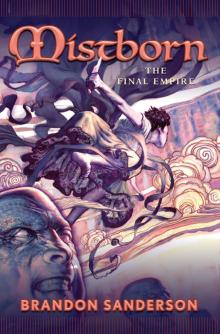 Mistborn
Mistborn Alcatraz versus the Evil Librarians
Alcatraz versus the Evil Librarians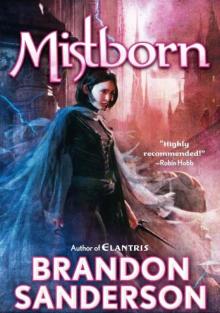 The Final Empire m-1
The Final Empire m-1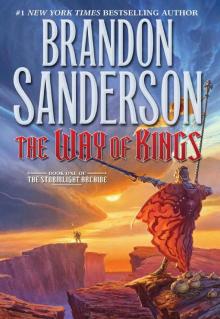 The Way of Kings (Stormlight Archive, The)
The Way of Kings (Stormlight Archive, The)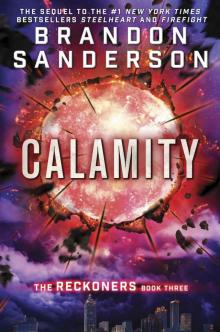 Calamity (The Reckoners)
Calamity (The Reckoners)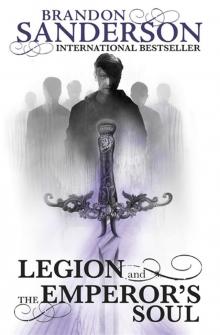 Legion and the Emperor's Soul
Legion and the Emperor's Soul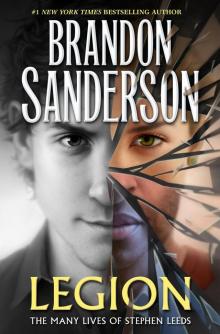 Legion: The Many Lives of Stephen Leeds
Legion: The Many Lives of Stephen Leeds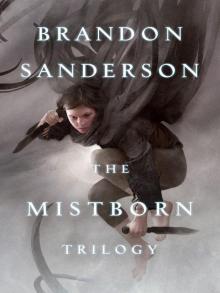 The Mistborn Trilogy
The Mistborn Trilogy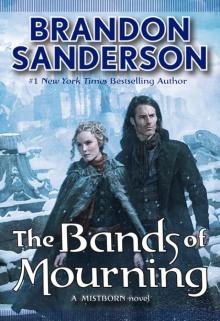 Bands of Mourning
Bands of Mourning Alcatraz
Alcatraz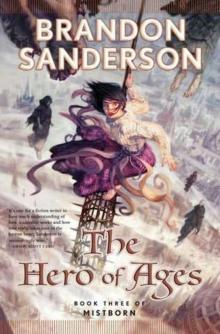 The Hero of Ages m-3
The Hero of Ages m-3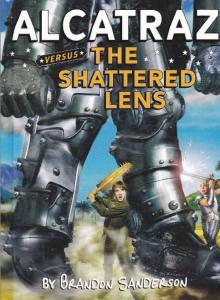 Alcatraz vs. the Shattered Lens
Alcatraz vs. the Shattered Lens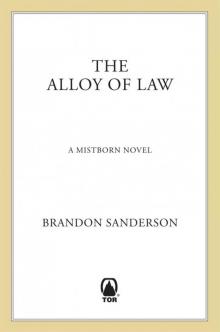 The Alloy of Law: A Mistborn Novel
The Alloy of Law: A Mistborn Novel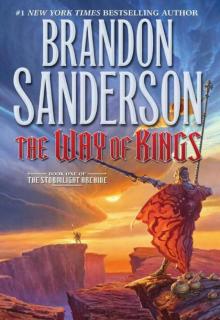 The Way of Kings sa-1
The Way of Kings sa-1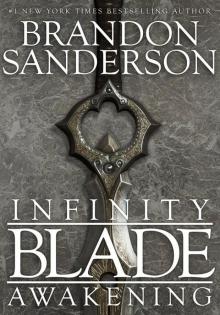 Infinity Blade: Awakening
Infinity Blade: Awakening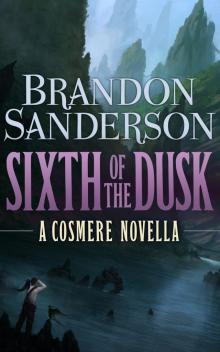 Sixth of the Dusk
Sixth of the Dusk The Stormlight Archive
The Stormlight Archive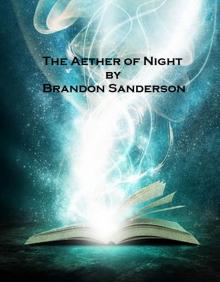 The Aether of Night
The Aether of Night